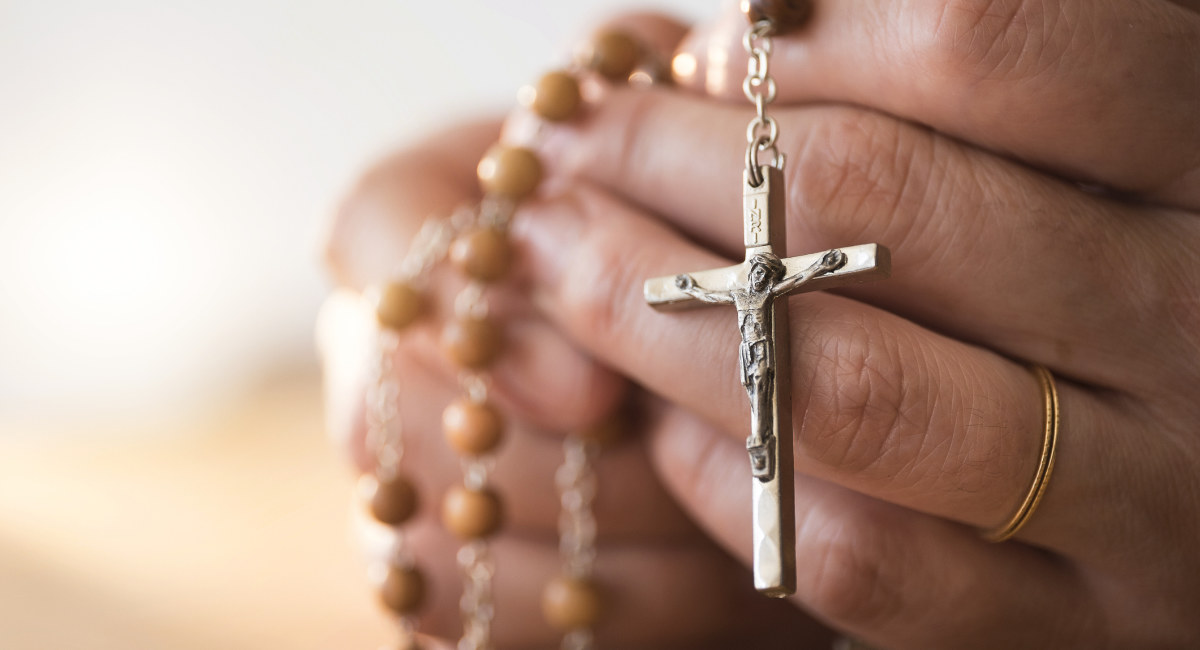An article published on The Conversation criticizes silent prayer as a “form of reproductive coercion.” It claims that “prayer can be experienced as intimidating, particularly when it is deemed ‘out of place’ or when the motives for prayer are questioned.” If this sounds discriminatory, that’s because it is.
Legislation was passed in the UK last year to ban silent prayer outside of of abortion facilities, but that law has yet to be enacted. In anticipation of the enactment, the article defends the law while accusing pro-lifers of being insensitive and ignorant to women’s needs and claiming that the mere presence of a silent person is intimidating because of how they are perceived by another person.
The Conversation argues, “[Pro-life] activists’ deeply-held faith objections to abortion can often prevent them from understanding the intimidation and harm they can cause. Their stance also ignores that pressurising someone to continue with a pregnancy is also a form of coercion.” This isn’t because the pro-lifers are necessarily acting in a coercive manner, says The Conversation, but because the woman seeking an abortion might perceive it that way and be “fearful because they do not know how far the activists will go to try to stop them entering the clinic.”
It also claims that the real point of the activism is not to save babies but is “aimed at making a private healthcare decision a public spectacle.” It argues, “By standing outside of clinics, anti-abortion activists are seeking to encourage public shaming as a way of deterring abortion.”
But how does a silent act draw attention?
It’s not actually about protecting women from intimidation
Pro-lifer Isabel Vaughan-Spruce was awarded £13,000 (or almost $17,000) in August for a claim filed against British police who arrested her repeatedly for praying silently near an abortion facility. She was standing still with her head down, praying, at the time of her arrest. Catholic priest, Father Sean Gough, was praying outside of a facility that was closed at the time when he was arrested. He said his arrest amounted to the prosecution of thought crimes.
Who was he drawing attention to by praying outside a closed abortion facility?
The uproar over silent prayer isn’t about protecting women from intimidation. It’s an attempt to hide the truth that abortion is the intentional and direct killing of a preborn child, and to punish the people who care enough to try to protect women and children from the trauma of abortion.
Abortion advocates and abortionists know that a pro-life presence outside of an abortion facility has a deep impact on women, many of them who choose life when they see that someone cares about them and their baby. All it takes sometimes is one person to say that their baby’s life matters to give them the confidence to choose life — taking a client and money away from the abortionist. If silent prayer is outlawed, then speaking to women outside of abortion facilities would be as well. Abolishing prayer removes any remaining obstacle to the abortion industry’s bottom line.
Because pro-lifers were present, her daughter is alive
Just because The Conversation says so, doesn’t mean most women consider pro-lifers to be intimidating. In fact, women in the UK have spoken out about how a pro-life presence outside of abortion facilities helped encourage them to choose life for their babies despite their circumstances. One such woman, Alina Dulgheriu, felt abortion was her only choice after being left “alone” and “abandoned” by her partner. But there was a pro-life group present outside the abortion facility that offered her the material, financial, and emotional support she needed to confidently continue her pregnancy.
“What kind of society withholds help from vulnerable women?” she argued. “… I didn’t want an abortion but I was abandoned by my partner, my friends and society. My financial situation at the time would have made raising a child very challenging.
“Thanks to the help I was offered by a group outside of a clinic before my abortion, my daughter is here today.”
Killing innocent humans isn’t a “right”
There also seems to be an effort to create mass confusion over what is and isn’t a “right.” There is no legitimate right to abortion because no human being has the right to intentionally and directly end the life of another innocent human being. There is, however, a right to prayer that is protected in both the UK (under the Human Rights Act of 1998) and in the US (under the First Amendment).
“Introducing buffer zones already means that ordinary citizens will be branded criminals and subject to crippling financial penalties for witnessing peacefully and offering help to women in need,” said Alithea Williams, Public Policy Manager of the Society for the Protection of Unborn Children, regarding the UK’s law prohibiting silent prayer at abortion facilities.
“This is not just an outrageous assault on civil liberties, it removes a real lifeline for women. Many children are alive today because their mother received help and support from a compassionate pro-life person outside a clinic. Many women feel pressured or coerced into having an abortion, and pro-life vigils give them options. Now their choices have been taken away.”







